| SILVER BEAVER COUNCIL RECOGNITION DINNER
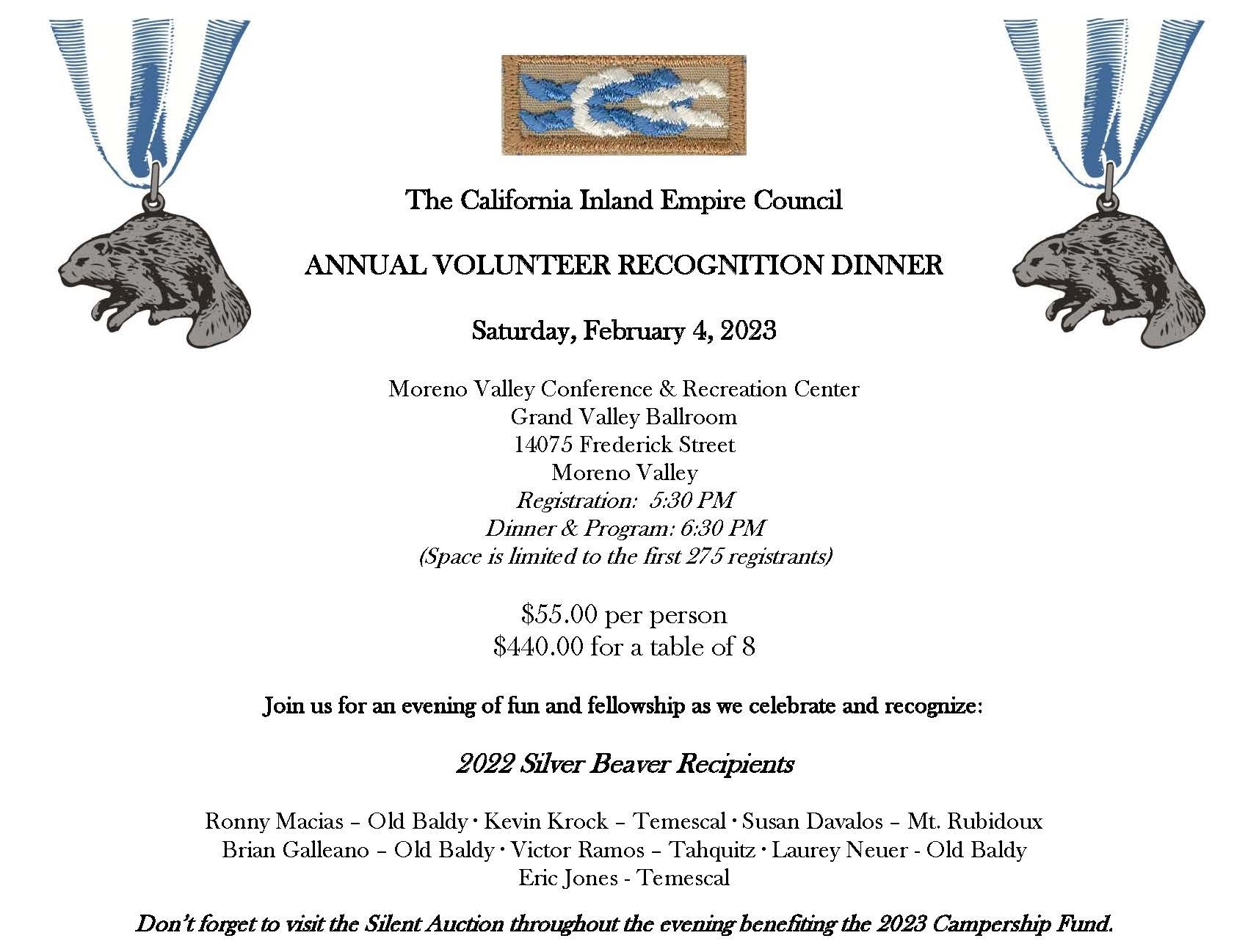
District Dinners
Champ Camp Free Pinewood Derby Workshop

A Christmas Message from Baden Powell
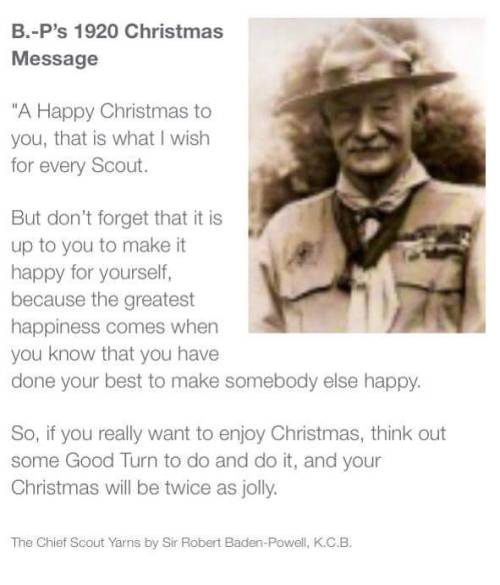
The Flag Remembers Christmas
| Many people associate the flag with holidays like the Fourth of July or Memorial Day. But let's hear some thoughts about what our Flag thinks about Christmas. | 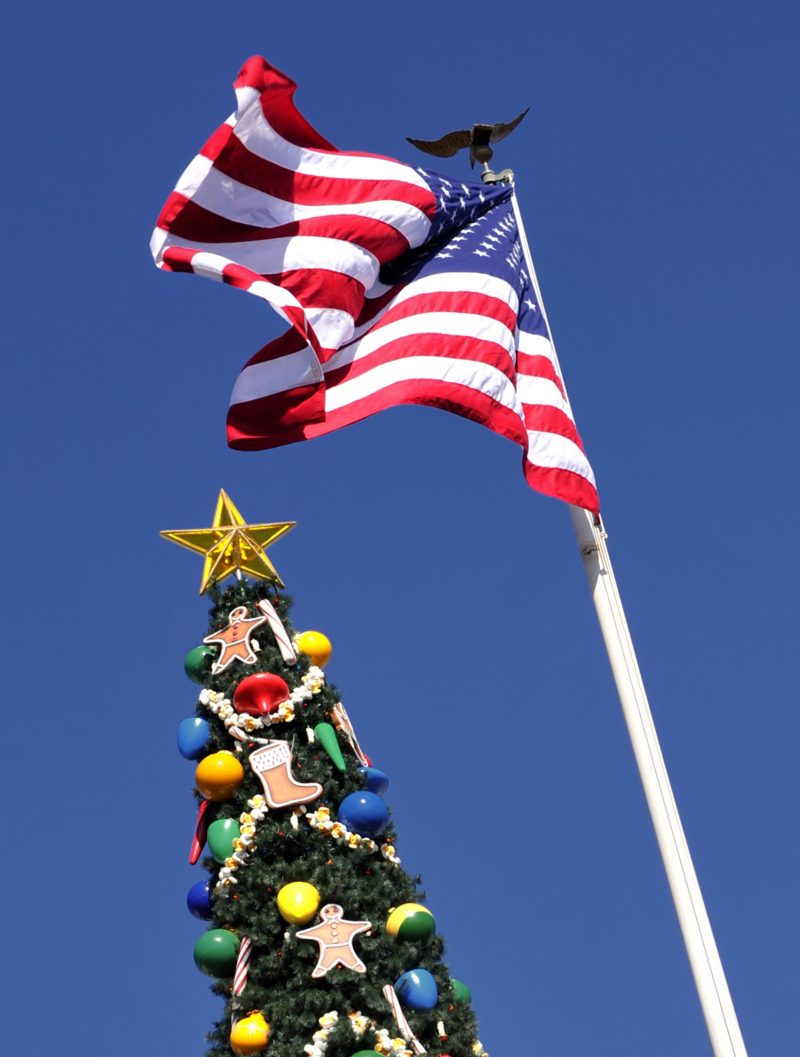 | My very first Christmas, I remember very well, I was in a boat with General George Washington, crossing the Delaware on his way to Valley Forge. By Christmas of 1814, Francis Scott Key had written a famous song about me after the British had burned our White House. That song became our national anthem. During the Civil War, on the Christmas of 1862 all men were free from slavery. I was really proud that Christmas. The Christmas of 1917 was a miserable one. During World War I, I was in France, in a cold and freezing battle but I stayed on to give our men hope. In 1941, General Douglas MacArthur spent Christmas with me in Manila, cheering our men on during World War II. I’ve been to Korea, Vietnam, and the Middle East. I’ve even been to the moon. I’ve been almost everywhere in the world, on one Christmas or another, since that long-ago time we crossed the Delaware. I’ll still be around this Christmas. I might not get as much attention as Christmas trees or presents. But I’ll still be here, giving hope and courage to the men, women, and families of our country. |
Winter Camp Registration
Summer Camp 2023 Registration Open
| Scouts BSA Week Long Summer Camp | | | | Scouts $465 Adults & Leaders $250 One FREE Adult for every 10 Scouts Registered | | Scouts BSA 1/2 Week Mini Summer Camp | .jpg) |  |  | | Scouts $280 Adults & Leaders $150 One FREE Adult for every 10 Scouts Registered | | Scouts BSA Summer Camp Youth Training Programs | .jpg) | | Participants $420 | .jpg) | | Registration Coming Soon | | INTERESTED BEING ON CAMP STAFF? CLICK HERE |
Empire Strykers Indoor Soccer Scout Night
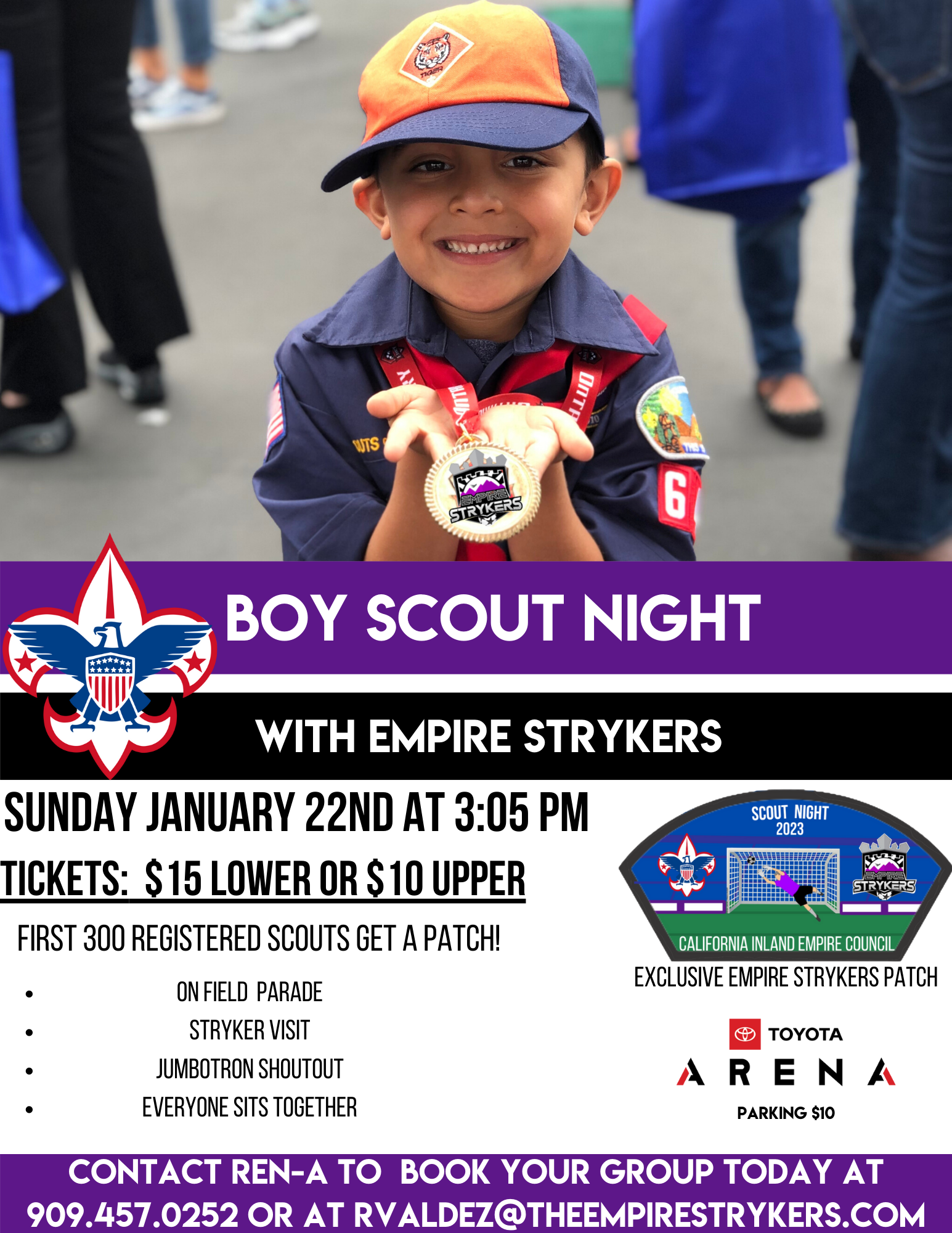
Firebirds Scout Hockey Night
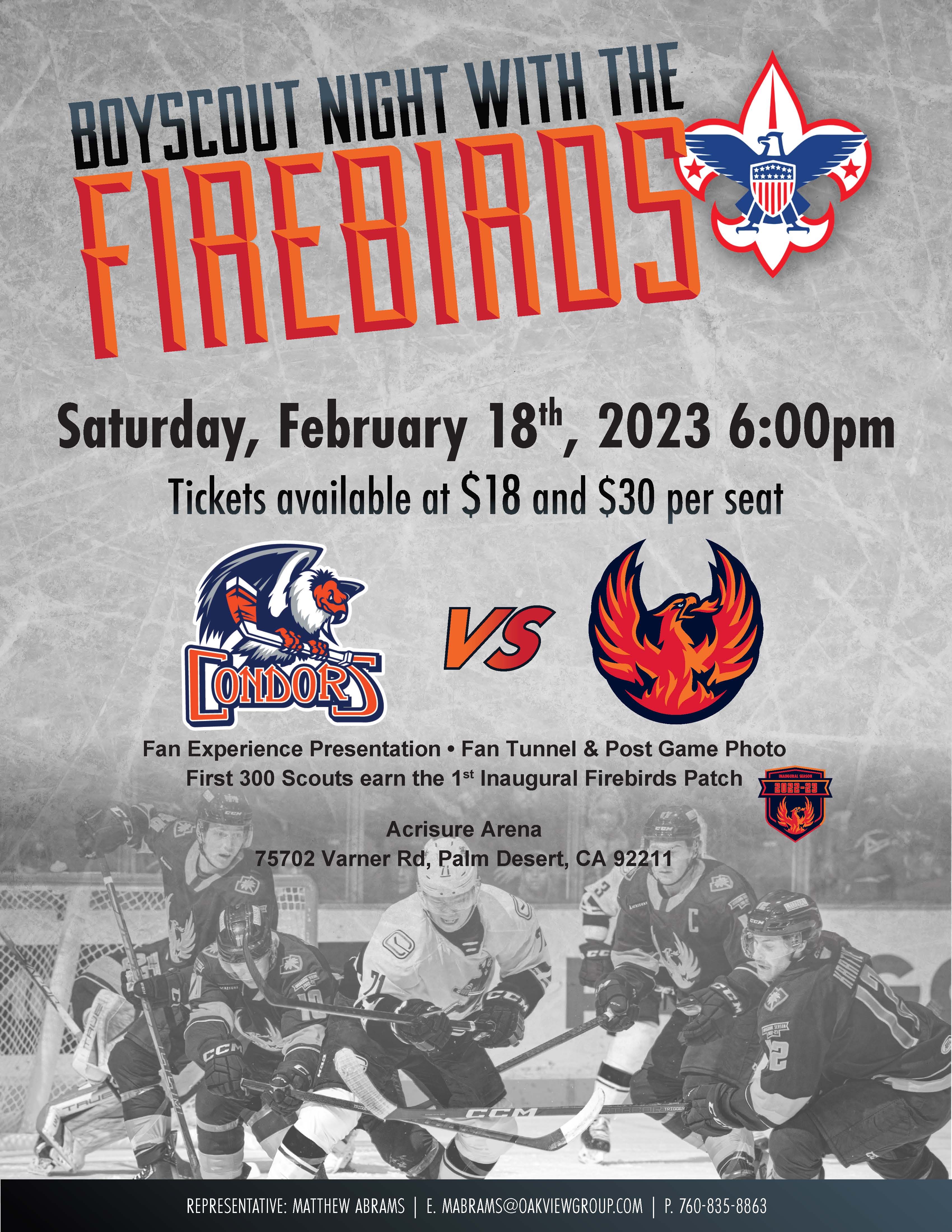
Mentoring Relationships – Understanding Development Stages Although every child’s development is unique and youth will achieve developmental milestones as different ages, all young people will have distinct needs and challenges as they grow and learn. Knowing broadly what these needs are will help you better understand how to support the young person you are mentoring in the Scouting program. The following are broad developmental stages that most youth move through at their own pace, but most often during these time periods: Early elementary school – 5- 8 years of age: - Just beginning to explore the world outside of their family
- Occasionally struggle to manage their emotions and behavior
- Very self-focused, but starting to have more concern for others
- Learn-by-doing so benefit from hands-on activities and play
- Have short attention spans – enjoy doing part of tasks but may not finish
- Cannot multi-task – need to focus on one thing at a time
- Concrete thinkers – must see, hear, touch, smell, or taste in order to think about it
- Are curious about “why” and “how”
- Right and wrong is generally based on family definitions
- Want to please adults/parents
Late elementary school and early middle school - 9 to 11 years of age: - Enjoy group activities and cooperation
- Prefer to be with member of the same gender
- Still self-focused but understand others have perspectives different from their own
- Want things to be fair or equal and judge in absolutes
- Sense of humor has developed
- Can focus attention for longer periods of time
- Start showing independence through disobedience, back talk, and rebellion
- Peers gain importance – youth worry about fitting in
- Can struggle with transition from elementary (more regimented environment) to middle school (more social and academic oriented environment)
- Pleasing adults/parents becomes less important, but is still see them as the authority
Late middle-school and early high school – 12 to 14 years of age: - Rapid changes in physical appearance - growth spurts and hormone changes
- Want to be less involved with family to be their own person
- Peers take on an even larger role in their life
- Develop romantic attractions and interest in bodies, and sex
- Increased use of social media
- Can be extremely self-conscious and critical of self
- Interested in making their own decisions and shaping their world rather than relying on adults to come up with solutions
- Can use logic, reason, and abstract thinking
- Develop strong interests that may change as they explore opportunities
- Can be empathetic to others in their social sphere but still worry about self-image and fitting in
Late High School – 15 to 18 years of age: - Most physical changes have stopped, but body image and appearance concerns remain
- Desire status among their peers
- Want to be a part of a group but have an individual identity
- Interested in dating and co-ed activities
- Want adult leadership roles
- Learning how to make commitments and follow through
- Personal philosophy begins to emerge
- Developing own set of values and beliefs
- High level of abstract thinking and problem-solving abilities
- Developing community consciousness and concern for well-being of others
- Like to demonstrate their knowledge and teach others
Foxfire is looking for Adults to be a part of Faculty for the 2023 Foxfire program and for future Foxfire Courses. Anyone interested should have some knowledge of the Wilderness, crafts, quartermaster, or forge. Also, Foxfire would prefer that you have attended Wood Badge. Interested individuals should contact: Frank Gruendner, 2023 Foxfire Clan Chieftan fgruendner@ca.rr.com Gary DeFraene, Foxfire Coordinator gary@mrdcamping.com |
| SAFETY MOMENTS - WINTER ACTIVITES SUMMARY There is magic to camping in winter. It is one of the most challenging outdoor adventures. However, potentially extreme weather conditions, cold temperatures, and unique hazards associated with outdoor winter activities require careful planning to ensure safety. GENERAL INFORMATION Eating the right type of food when camping or playing in the cold is important. One of the best ways to remember what is appropriate to eat when you are spending extended periods of time outside in cold weather is to use good nutrition to build the fire within. Make sure your food consumption includes sugars, which act like a fire starter; carbohydrates and proteins, which act as kindling; and fats that produce the energy needed to keep the fire burning and your body running at peak performance. Stay away from caffeinated drinks such as soda, coffee, and tea; drink plenty of plain water to keep yourself properly hydrated. Keeping warm is the most important part of cold-weather camping and outdoor activities. Use the “C-O-L-D” method to stay warm. C=Clean: Since insulation is only effective when heat is trapped by dead air spaces, keep your insulating layers clean and fluffy. Dirt, grime, and perspiration can mat down those air spaces and reduce the warmth of a garment. O=Overheating: Avoid overheating by adjusting the layers of your clothing to meet the outside temperature and the exertions of your activities. Stay hydrated by drinking plenty of water, and refrain from drinking caffeinated drinks that act as diuretics. L=Loose layers: A steady flow of warm blood is essential to keeping all parts of your body heated. Wear several loosely fitting layers of clothing and footgear that will allow maximum insulation without impeding your circulation. Having clothing that is brightly colored (orange or red) is also a good idea, so hunters and sportsmen can see you in snowy conditions. Always have a hat and wear it. D=Dry: Sweaty, damp clothing and skin can cause your body to cool quickly, possibly leading to frostnip and hypothermia. Keep dry by avoiding clothes that absorb moisture. Always brush away snow on your clothes before you enter a heated area. Keep clothing around your neck loosened so that body heat and moisture can escape instead of soaking through your layers. |
CIEC Scout Shop 2351 West Lugonia Ave Suite G Redlands CA, 92374 909-793-2463 THE SCOUTSHOP WILL BE CLOSED SATURDAY DECEMEBER 31ST THROUGH JANUARY 4TH FOR INVENTORY Store Hours Tuesday - Wednesday - Friday 10:00am to 5:30pm Thursday 10:00am to 7:00pm Saturdays 10:00am to 4:00pm Closed Sunday and Monday |